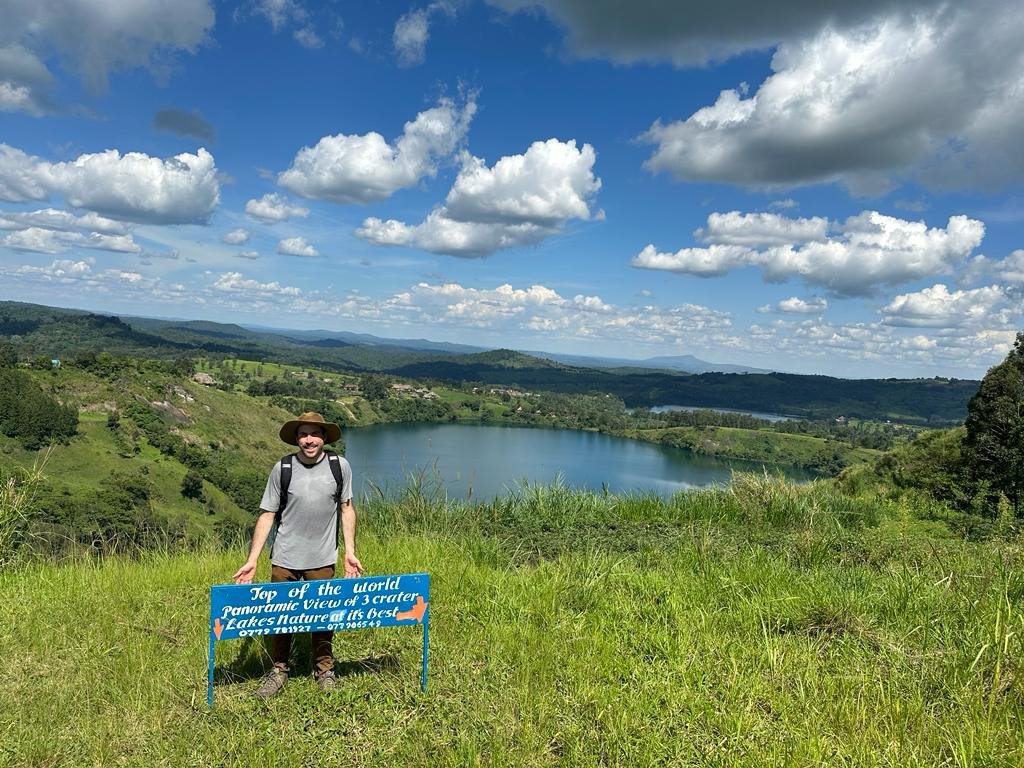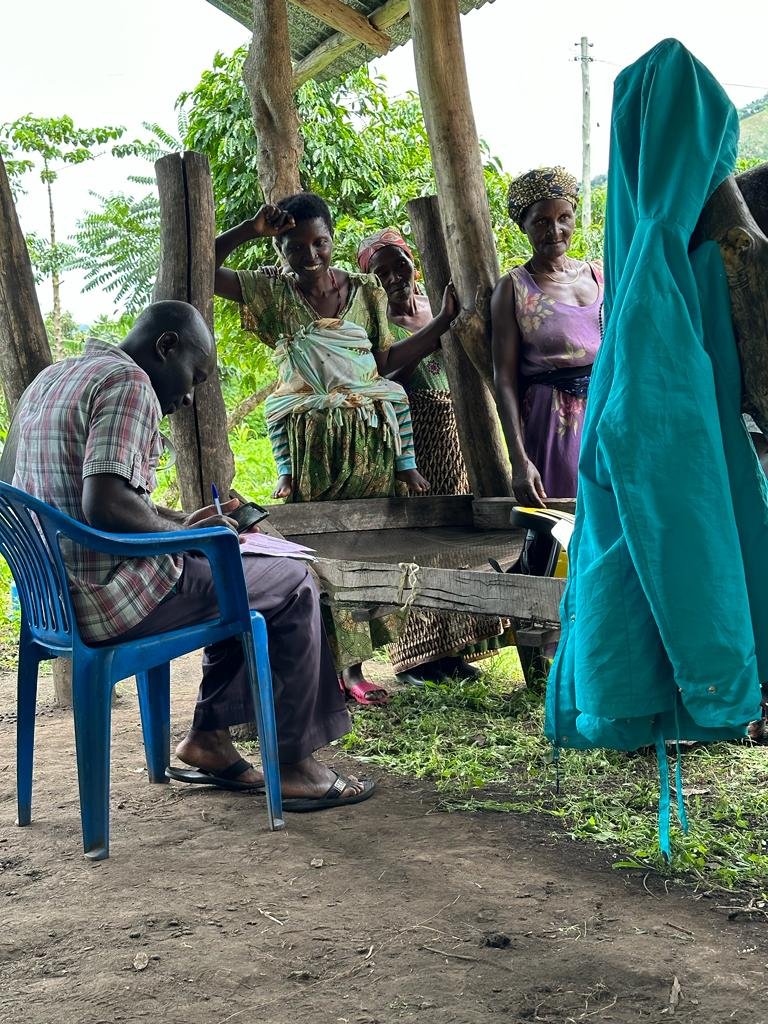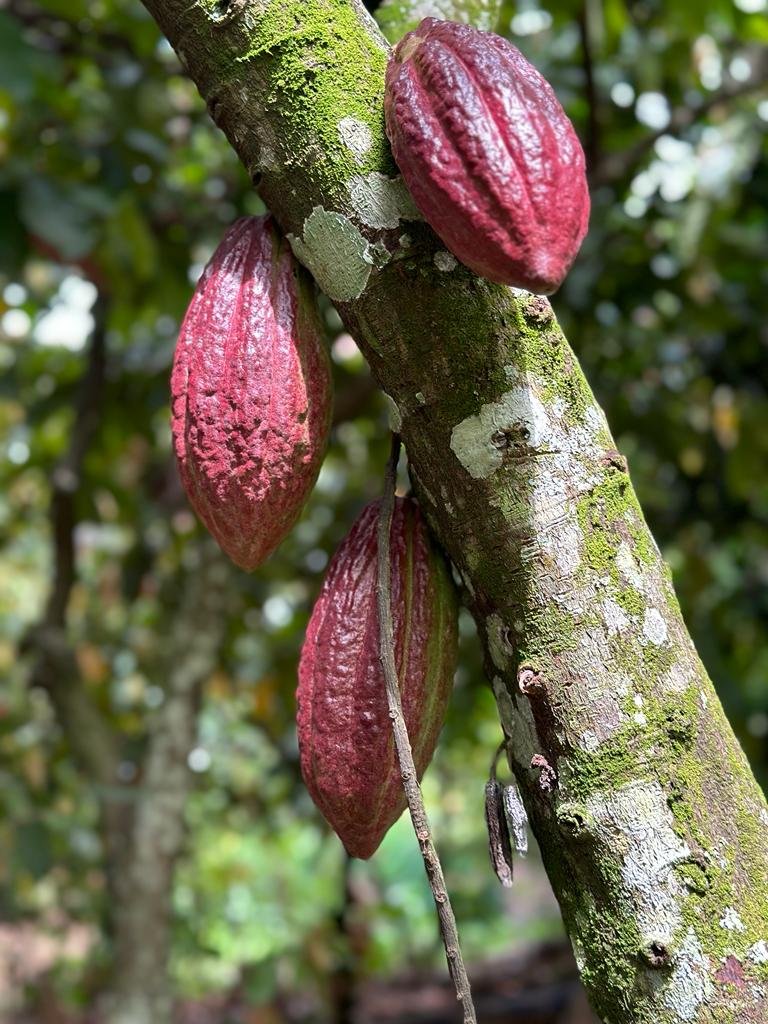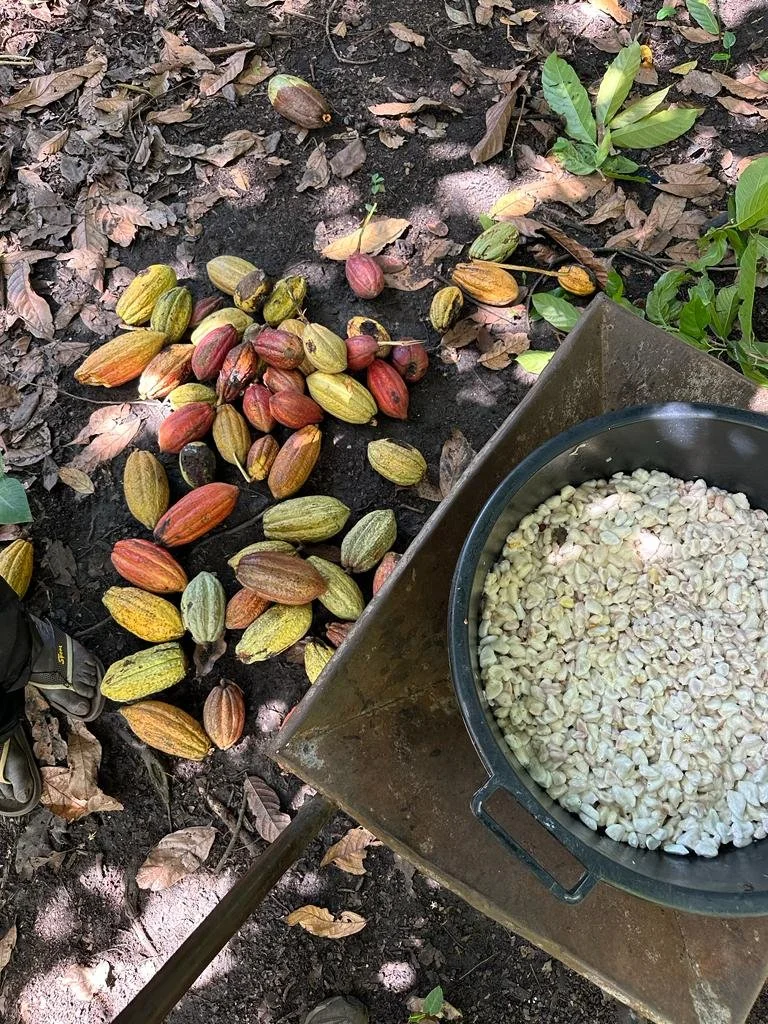A Journey from Bar to Bean
Tracing Makenu’s Roots in Uganda
It’s early May 2023. The Ugandan air is warm and fragrant as Makenu co-owner Tucker Juan heads deeper into the countryside. Lush hills roll toward the sky, goats graze along the roadside, and the day hums with the kind of color and rhythm that can’t be rushed.
But Tucker is far from Atlantic Beach, Florida. He’s riding with his driver Patrick from Kasese to the small mountain village of Kilembe, beginning a journey that will take him to one of the places where Makenu chocolate truly begins.
What We Say at the Shop
Back home, when a new customer walks through the doors of Makenu, they’re greeted with:
"Welcome in! We’re a bean-to-bar chocolate shop, and today we’re working with five different origins…”
And off they go — on a tasting adventure through the flavors of Belize, Guatemala, Uganda, and beyond.
We try to describe what it means to work directly with growers. We talk about fermentation, drying racks, and what makes origin-specific chocolate so expressive. But nothing replaces seeing it. Feeling it. Being there.
Tucker and co-owner Jessica Diebel had made this kind of pilgrimage before — to Belize in 2019, Costa Rica in 2022 — but Uganda was new terrain. New partners. New layers of meaning.
The Fermentry
Tucker’s first stop was the fermentation facility, operated in partnership with Latitude Trade Co., Makenu’s sourcing partner in Uganda. He was greeted by Max, the head of fermentation — a man who spoke of microbial balance and drying schedules the way a winemaker might speak of barrel aging.
You could feel it right away: Max cared. About every step, every bean, every crate.
Behind the warehouse was a simple concrete patio, ringed by drying racks and shaded work sheds. There, wooden fermentation boxes were being assembled and scrubbed. Beans were raked across tarps in the sun, sorted by hand, and recorded by lot.
Every Step Matters
After harvest, beans are scooped from fresh cacao pulp and placed in burlap-lined crates to ferment for 6–10 days.
Each crate is tagged with a harvest location, weight, and drying method — so that buyers like Makenu can trace the exact origin of every batch.
Before drying, the beans are sorted and inspected. Cut tests help assess fermentation levels. Imperfections are pulled by hand. Only then are the beans laid out on long drying beds, suspended beneath vast tented roofs.
The Buying Station
The next day, Tucker visited one of three buying stations set up by Latitude in nearby farming communities. These serve as drop points where smallholder farmers bring freshly harvested beans for purchase — often right outside their own homes.
Though it wasn’t open yet, the station was already alive with people. Buckets of wet cacao fruit arrived in waves.
Each farmer’s harvest would be weighed and barcoded. That data would later be used to compare wet and dry weights — ensuring every grower is paid fairly for their yield.
A Walk Through the Trees
While waiting, Tucker wandered with the farmer’s family beneath a low canopy of cacao trees.
Within a few steps, he spotted the red, yellow, and green pods growing right off the trunks — a kind of living abundance that never fails to awe, no matter how many origin trips you’ve taken.
Under that shaded canopy, the story of Makenu — and the story of chocolate itself — came full circle again.
Because this is where it begins. Every bar, every bite, starts here — with soil, sweat, and a quiet kind of reverence.
The farmer demonstrated the harvest. Low-hanging fruit is twisted off gently by hand. Higher pods are coaxed down with long hooked poles carved from wood. To open the fruit, they either use a knife or simply knock two pods together until one cracks open. Inside: a fragrant, sticky pulp surrounding rows of fresh cacao beans.
The harvest goes into rubber buckets. From there, it’s hauled by wheelbarrow to the nearby buying station — each batch heavy with potential.
Accountability in Every Bag
Back at the buying station, it was time for weighing and inspection.
Buyers look for what’s called a placenta — pulp without viable beans — a kind of empty volume that doesn’t contribute to the final yield. They check for quality, weight, and freshness. Then each farmer’s harvest is tagged with a unique barcode that stays with the beans all the way through fermentation.
This is where the story of the bar is anchored. These tags make it possible for chocolate makers like Makenu to trace a batch all the way back to a single grove, a single grower — and ensure they’re compensated accordingly.
The Landscape of Labor
Later that afternoon, Tucker visited a second nearby station to observe the same process.
This one, though, had something different: honeybees.
Here, the farmers also kept hives — not for pollinating the cacao trees (that job belongs to gnats or human hands), but for selling local honey and supporting a more regenerative ecosystem.
Each farm had its own rhythm. Some had fences going up to keep out thieves. Some had children helping parents sort and carry the harvest. Some grew only cacao, while others branched into bananas or honey. What they all shared was the intention to grow something worth sharing.
The Long Night
As the sun dropped behind the mountains, the final step of the day came by truck.
Flatbeds pulled up at the fermentation facility under cover of night, headlights glowing against the drying tarps. Workers moved quickly and with quiet
Not every day is this long, but this one was. And no one rushed it.
Back to the Bar
Weeks later, back in Atlantic Beach, Tucker returned to the rhythm of the café: espresso pours, chocolate flights, and the familiar question from across the counter —
“So… how was Uganda?”
He tried to answer. Sometimes in a sentence. Sometimes in a story.
But the truth is: it’s all there in the bar.
In the way it melts, in the way it tastes, in the way it makes you feel something rooted — and real.










